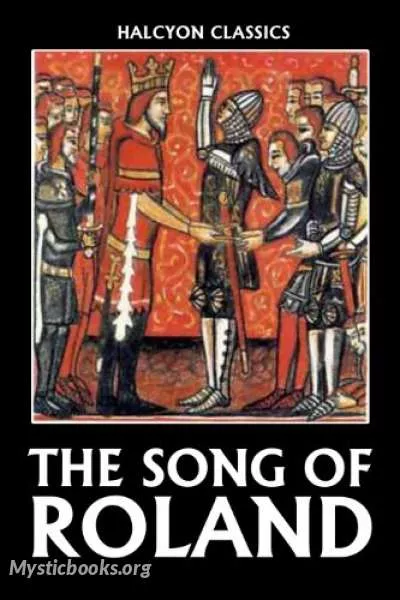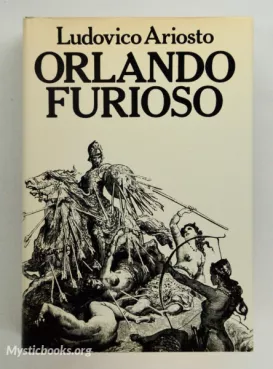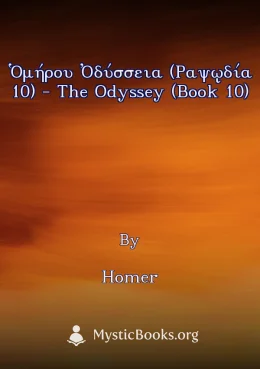
The Song of Roland
by Anonymous
'The Song of Roland' Summary
Charlemagne's army is fighting the Muslims in Spain. They have been there for seven years, and the last city standing is Saragossa, held by the Muslim King Marsile. Threatened by the might of Charlemagne's army of Franks, Marsile seeks advice from his wise man, Blancandrin, who counsels him to conciliate the Emperor, offering to surrender and giving hostages. Accordingly, Marsile sends out messengers to Charlemagne, promising treasure and Marsile's conversion to Christianity if the Franks will go back to France.
Charlemagne and his men, tired of fighting, accept his peace offer and select a messenger to Marsile's court. The protagonist Roland, Charlemagne's nephew, nominates his stepfather Ganelon as messenger. Ganelon, who fears being murdered by the enemy and accuses Roland of intending this, takes revenge by informing the Saracens of a way to ambush the rear guard of Charlemagne's army, led by Roland, as the Franks re-enter France through the mountain passes.
As Ganelon predicted, Roland leads the rear guard, with the wise and moderate Oliver and the fierce Archbishop Turpin. The Muslims ambush them at Roncesvalles and the Christians are overwhelmed. Oliver pleads with Roland to blow his horn to call for help, but Roland tells him that blowing his horn in the middle of the battle would be an act of cowardice. If Roland continues to refuse, Oliver will not let Roland see his sister again whom Roland loves the most. However, Archbishop Turpin intervenes and tells them that the battle will be fatal for all of them and so instructs Roland to blow his horn oliphant (the word is an old alternative to "elephant", and was used to refer to a hunting horn made from an elephant tusk) to call for help from the Frankish army. The emperor hears the call on their way to France. Charlemagne and his noblemen gallop back even though Count Ganelon tries to trick them.
The Franks fight well, but are outnumbered, until almost all Roland's men are dead and he knows that Charlemagne's army can no longer save them. Despite this, he blows his olifant to summon revenge, until his temples burst and he dies a martyr's death. Angels take his soul to Paradise.
When Charlemagne and his men reach the battlefield, they find the dead bodies of Roland's men, who have been utterly annihilated. They pursue the Muslims into the river Ebro, where the Muslims drown. Meanwhile, Baligant, the powerful emir of Babylon, has arrived in Spain to help Marsile. His army encounters that of Charlemagne at Roncesvalles, where the Christians are burying and mourning their dead. The Franks fight valiantly. When Charlemagne kills Baligant, the Muslim army scatters and flees, leaving the Franks to conquer Saragossa. With Marsile's wife Bramimonde, Queen of Saragossa, Charlemagne and his men ride back to Aix, their capital in France.
The Franks discover Ganelon's betrayal and keep him in chains until his trial, where Ganelon argues that his action was legitimate revenge, not treason. While the council of barons assembled to decide the traitor's fate is initially swayed by this claim, partially out of fear of Ganelon's friend Pinabel who threatens to fight anyone who judges Ganelon guilty, one man, Thierry, argues that because Roland was serving Charlemagne when Ganelon delivered his revenge on him, Ganelon's action constitutes a betrayal.
Pinabel challenges Thierry to trial by combat. By divine intervention, Thierry kills Pinabel. By this the Franks are convinced of Ganelon's treason. Thus, he is torn apart by having four galloping horses tied one to each arm and leg and thirty of his relatives are hanged. Bramimonde converts to Christianity, her name changing to Juliana. While sleeping, Charlemagne is told by Gabriel to ride to help King Vivien and bemoans his life.
Book Details
Authors

Anonymous
Unknown
An anonymous author is a writer who has chosen to keep their identity hidden from their readers. The reasons for this decision can vary, and may include political or social persecution, personal priva...
Books by AnonymousDownload eBooks
Listen/Download Audiobook
- Select Speed
Related books

Mahabharata by Vyasa: The epic of ancient India condensed into English verse by Romesh C. Dutt
This book is an English verse adaptation of the Mahabharata, one of India's two great epic poems. The original Sanskrit epic, attributed to the sage V...

Ὕμνοι ἤτοι προοίμια (Homeric Hymns) by Homer
The Homeric Hymns are a collection of ancient Greek poems dedicated to various gods and goddesses. They are believed to have been composed in the 8th...

Paradis Perdu by John Milton
Paradis Perdu, or Paradise Lost, is an epic poem by John Milton that recounts the biblical story of the Fall of Man. It explores themes of free will,...

Two Wives by Thomas Hardy
The Two Wives is a narrative poem by Thomas Hardy that tells the story of a man who is torn between his love for his two wives. The first wife, Louisa...

Kalevala: the Epic Poem of Finland (Crawford Translation) by Elias Lonnrot
Kalevala is a 19th-century epic poem compiled by Elias Lönnrot from Karelian and Finnish oral folklore and mythology. It is considered the national ep...

Evangeline by Henry Wadsworth Longfellow
Evangeline, A Tale of Acadie is an epic poem by the American poet Henry Wadsworth Longfellow, written in English and published in 1847. The poem follo...

Orlando Furioso by Ludovico Ariosto
In the enchanting realm of chivalry and romance, a whirlwind of epic adventures awaits you in "Orlando Furioso" by Ludovico Ariosto. Step into a world...

Bible (Fillion) 18: Livre de Job (Chapitres sélectionnés) by Fillion Bible
Le Livre de Job est une œuvre majeure de la littérature biblique. Il explore le thème central du mal et de la souffrance humaine, interrogeant la just...

Ὁμήρου Ὀδύσσεια (Ραψῳδία 10) - The Odyssey (Book 10) by Homer
This book presents the tenth book of Homer's Odyssey, narrated in ancient Greek. It follows Odysseus' perilous journey home after the Trojan War, focu...

Myszeis by Ignacy Krasicki
“Myszeis” is a satirical poem written by Ignacy Krasicki, a prominent Polish poet and bishop. It tells the story of a conflict between mice and rats o...
Reviews for The Song of Roland
No reviews posted or approved, yet...